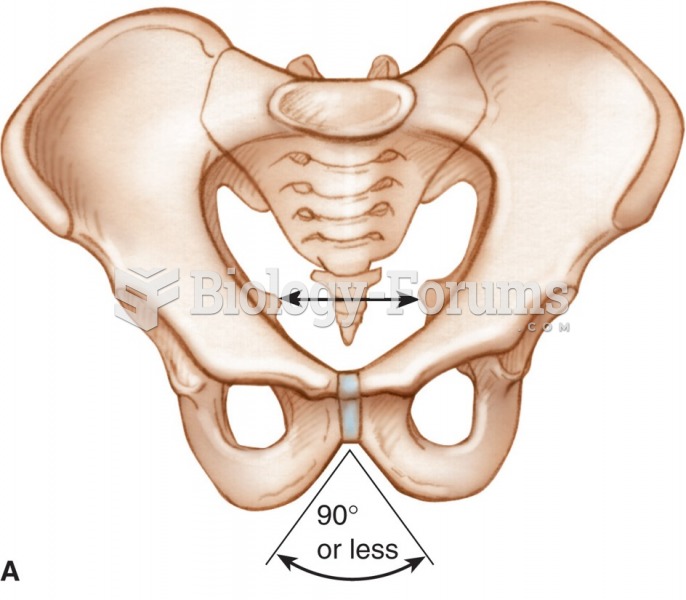|
|
|
Fungal nail infections account for up to 30% of all skin infections. They affect 5% of the general population—mostly people over the age of 70.
Disorders that may affect pharmacodynamics include genetic mutations, malnutrition, thyrotoxicosis, myasthenia gravis, Parkinson's disease, and certain forms of insulin-resistant diabetes mellitus.
There are over 65,000 known species of protozoa. About 10,000 species are parasitic.
Approximately 15–25% of recognized pregnancies end in miscarriage. However, many miscarriages often occur before a woman even knows she is pregnant.
Congestive heart failure is a serious disorder that carries a reduced life expectancy. Heart failure is usually a chronic illness, and it may worsen with infection or other physical stressors.
 Bluehead wrasse males with yellow females of the species. If the blueheaded male is removed from a t
Bluehead wrasse males with yellow females of the species. If the blueheaded male is removed from a t
 (a) Savanna baboons live in female-philopatric groups, among which males migrate. (b) Chimpanzees li
(a) Savanna baboons live in female-philopatric groups, among which males migrate. (b) Chimpanzees li





